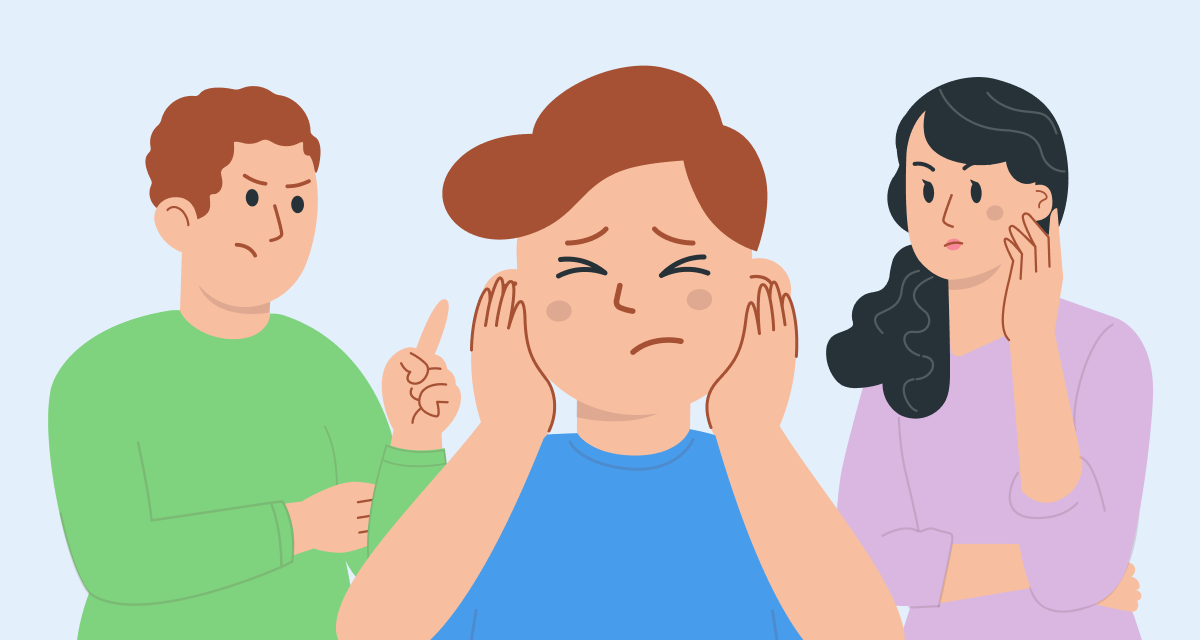“They Don’t Listen!” — Normal or Worrying?

Your child argues, ignores your requests, talks back, or does the opposite of what you asked? In those moments, it’s easy to feel like something is wrong with them or with your parenting.
But the truth is: challenging behavior in kids ages 7–12 is often a normal part of development. Let’s explore when “not listening” is just a phase, and when it’s a sign to pay closer attention.
What Do We Mean by “Not Listening”?
Parents often use this term when children refuse to follow instructions, argue, yell, overreact, or ignore adult requests.
Between the ages of 7 and 12, kids can impulsively express emotions, push back, shut down when corrected, or openly challenge rules. It may feel like defiance or manipulation.
But in many cases, their behavior is linked to things like fatigue, stress, trouble managing emotions, testing boundaries, or simply craving recognition and respect.
Children are still learning to understand their feelings, and behavior is their way of showing how they feel inside.
Why It’s Developmentally Normal
Kids aged 7–12 are in between early childhood and adolescence. They want more independence and to make their own decisions, but they’re not always ready for full responsibility. So they test limits and try to assert themselves.
It’s normal for them to:
- Insist on their opinion
- Disagree with you
- React emotionally
- Express themselves clearly but sometimes sharply
This is all part of building their sense of identity and autonomy. They don’t yet have full emotional regulation, but they’re learning, and that growth can be hard for both children and parents.
What’s Behind the Behavior
Challenging behavior isn’t about being “difficult.” It’s often a sign your child is struggling.
They might be:
- Anxious about school or friendships
- Overwhelmed by new expectations
- Upset they’re not being heard
- Unsure how to express big feelings
Sometimes, instead of asking, “Why are you acting like this again?” it helps to gently say, “What’s going on with you?” — and they may open up.
How to Support Your Child
Even if your child acts like they don’t need you, they still depend on your presence and support.
Here’s what helps:
- Speak calmly and clearly: kids this age pick up on your tone
- Respect their boundaries: let them express emotions and have a voice
- Help them name their feelings: “It seems like you’re angry because I said no more screen time—I get that. It’s summer break, and it matters to you. But we agreed on this rule. I’m here if you want to talk.”
- Set clear, consistent expectations: explain the reasons behind them
- Take care of yourself too: when you’re calm, your child can settle down more easily
When It’s More Than a Phase
Sometimes a child’s behavior goes beyond what’s developmentally expected.
Consider seeking help if your child:
- Regularly shows aggression toward themselves or others
- Completely ignores boundaries and connection
- Frequently loses control and can’t calm down, even with support
- Seems deeply withdrawn or anxious in ways that affect daily life
In those cases, don’t blame yourself. Behavior is not “just who they are” — it’s dynamic and can improve greatly with the right help.
The Takeaway
When a 7—12-year-old “doesn’t listen,” it’s often not rebellion, it’s growth. They’re learning how to navigate strong emotions, assert boundaries, and be their own person.
Your calm presence and support matter more than perfect discipline or control. You don’t have to get it all right. Just being there and paying attention is enough to help them through it.
References:
- Why Do Kids Act Out: Strategies for Problem Behavior, Child Mind Institute, 2024
Not Naughty: 10 Ways Kids Appear to Be Acting ‘Bad’ But Aren’t, Psychology Today, 2017 - Normal Child Behavior, American Academic of Pediatrics, 2017
- Evidence Base Update for Psychosocial Treatments for Disruptive Behaviors in Children, Journal of Clinical Child & Adolescent Psychology, 2017
Проверьте электронный ящик



















